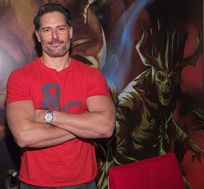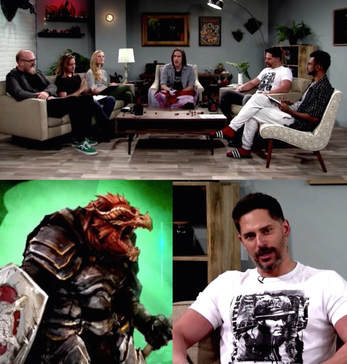|
Any Dungeons & Dragons (D&D) fans out there?
Manganiello’s D&D experiences led me to consider my time creating character sheets and rolling five sided dice. I took part in the contest nearly every weekend during the school year from fifth though eighth grades at my local recreation center. It was the highlight of my week, and this was especially true during winter. I grew up in Metro Detroit, and the anticipation of weekly sessions made Michigan’s snowy season more bearable. What is D&D? The official website offers this overview: “The core of D&D is storytelling. You and your friends tell a story together, guiding your heroes through quests for treasure, battles with deadly foes, daring rescues, courtly intrigue, and much more.” The folks I steered included Bob Zobar, an elf fighter, Martin Greenstone, a human cleric, and Ogie, a magic user who was also human. (I have no idea where I came up with these names.) The character that I most related to was Bob because, at the time, I thought of elves as diminutive and I’ve always been on the small side. But, as I later learned from “Lord of the Rings,” elves like can also be tall and graceful. Our dungeon master (DM) was Ned, a fellow in his 20s who was hired by the rec center. Who is the DM? David M. Ewalt in “Of Dice and Men: The Story of Dungeons & Dragons and the People Who Play It” describes him/her as “author, director, and referee. A good DM must be creative, designing a world from scratch and spinning it into narrative. But they must also possess an ordered, logical mind, capable of recalling and understanding hundreds of pages worth of rules.” Ned created an air of mystery and suspense by propping up his loose leaf binders and game manuals to create a wall between himself and the players. We never knew what he was planning and the challenges he might send our way. Ned also had a flare for the dramatic, donning the personas of the beings and creatures we encountered. He especially delighted in frustrating us by playing adversaries that were none too bright. (“Wha? Huh? Who?”)
Getting back to Manganiello, the thespian also explained that the game helped prepare him for a career in the entertainment industry. He often served as DM growing up, and he compared this to his role in show business in that one is “creatively cooking up adventures the way a modern-day showrunner or producer would. ... It was building characters and story arcs and auxiliary storylines. Little did I know I was flexing all the muscles that I ended up using in my chosen profession.”
I completely agree with Manganiello, and some of what he said occurred to me about 10 years ago. That was when Ned and I reconnected through Facebook, and he asked: “Is this the same Eli whose life changed when he started playing D&D?” What an interesting thing to say! I thought about it, and I realized he was right. The game did alter my world in that it provided a social and creative outlet when I was still trying to figure out the type of people with whom I wanted to surround myself, as well as my own talents and interests.
0 Comments
|
AuthorI'm Eli Natinsky and I'm a communication specialist. This blog explores my work and professional interests. I also delve into other topics, including media, marketing, pop culture, and technology. Archives
April 2024
Categories |


 RSS Feed
RSS Feed